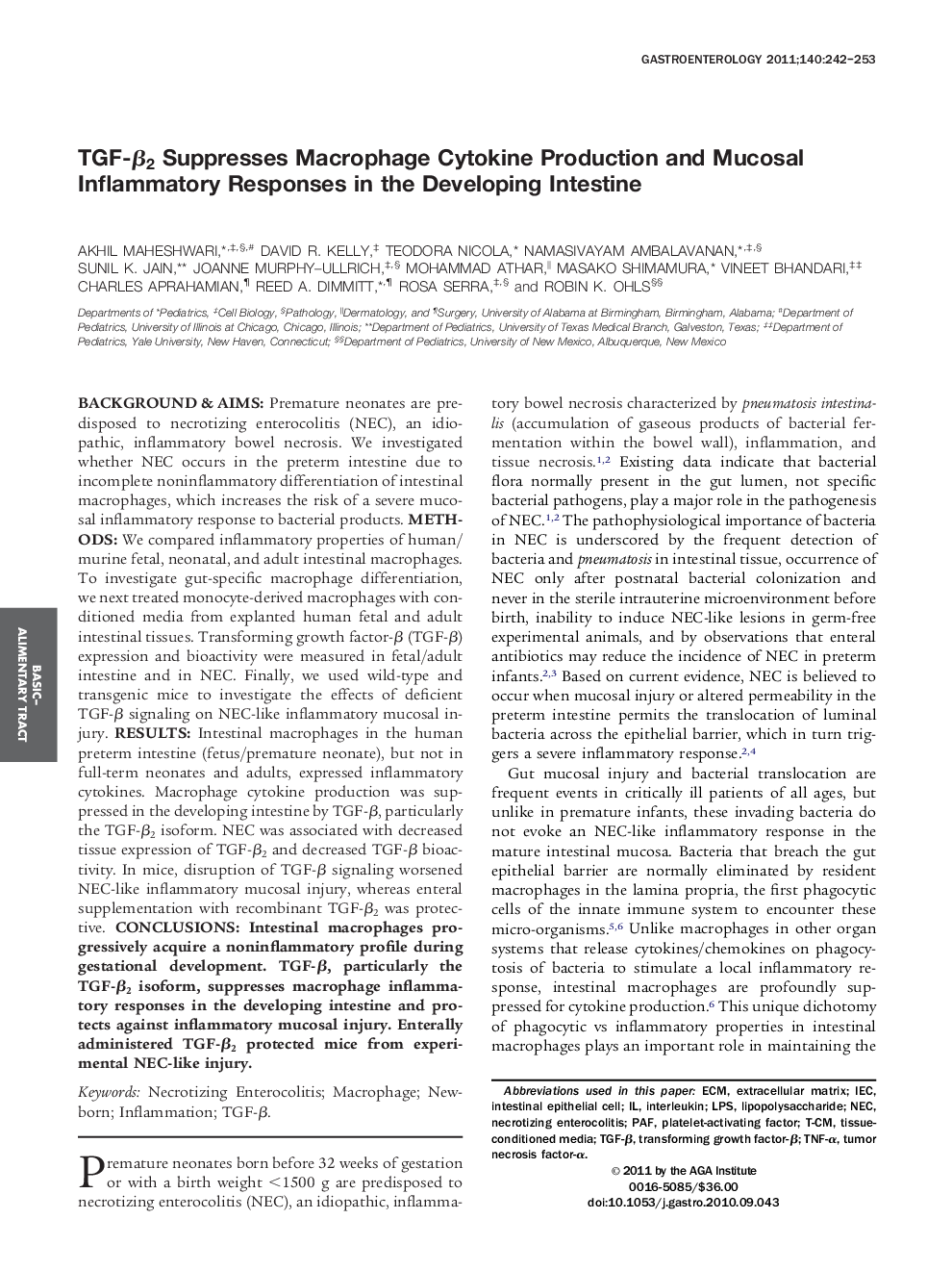| Article ID | Journal | Published Year | Pages | File Type |
|---|---|---|---|---|
| 3295516 | Gastroenterology | 2011 | 12 Pages |
Background & AimsPremature neonates are predisposed to necrotizing enterocolitis (NEC), an idiopathic, inflammatory bowel necrosis. We investigated whether NEC occurs in the preterm intestine due to incomplete noninflammatory differentiation of intestinal macrophages, which increases the risk of a severe mucosal inflammatory response to bacterial products.MethodsWe compared inflammatory properties of human/murine fetal, neonatal, and adult intestinal macrophages. To investigate gut-specific macrophage differentiation, we next treated monocyte-derived macrophages with conditioned media from explanted human fetal and adult intestinal tissues. Transforming growth factor-β (TGF-β) expression and bioactivity were measured in fetal/adult intestine and in NEC. Finally, we used wild-type and transgenic mice to investigate the effects of deficient TGF-β signaling on NEC-like inflammatory mucosal injury.ResultsIntestinal macrophages in the human preterm intestine (fetus/premature neonate), but not in full-term neonates and adults, expressed inflammatory cytokines. Macrophage cytokine production was suppressed in the developing intestine by TGF-β, particularly the TGF-β2 isoform. NEC was associated with decreased tissue expression of TGF-β2 and decreased TGF-β bioactivity. In mice, disruption of TGF-β signaling worsened NEC-like inflammatory mucosal injury, whereas enteral supplementation with recombinant TGF-β2 was protective.ConclusionsIntestinal macrophages progressively acquire a noninflammatory profile during gestational development. TGF-β, particularly the TGF-β2 isoform, suppresses macrophage inflammatory responses in the developing intestine and protects against inflammatory mucosal injury. Enterally administered TGF-β2 protected mice from experimental NEC-like injury.
